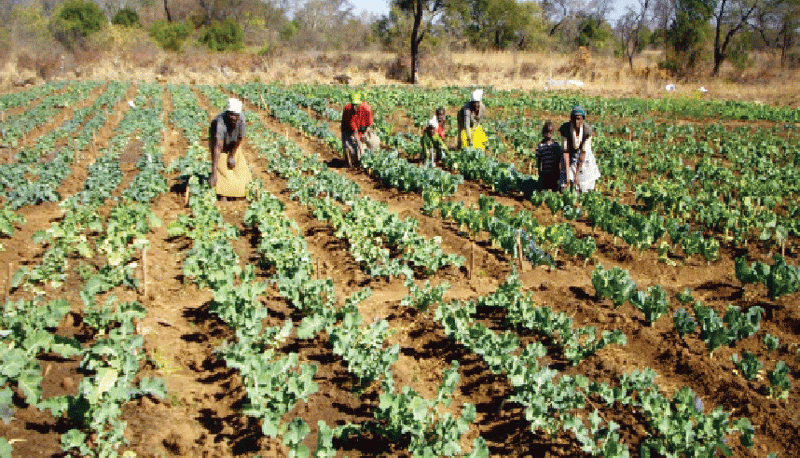
IN any conflictual situation that may involve violence like war or civil strife whereby the rule of law becomes rule by law, women and children may be the biggest victims of the violence because they are a politically powerless sociological minority.
Women suffer as a result of the masculine and political nature of the locus of enunciation of the actors. Actors in the foregoing context are the instigators of violence. Generally, in conflict situations women are found in the basket of victims, not that of instigators or actors.
Women suffer at the hands of powerful men and also at the hands of men with thwarted masculinities, that is men who only have their biological instruments for procreation and identification purposes who would enjoy exercising their lost masculinity on women in order to identify with the marker of masculinity.
In the light of this vignette, this writer would want to suggest that the issue of the Gukurahundi in Zimbabwe (1983-1987) cannot be argued to its logical conclusion without a gender lens being infused into the whole expenditure of effort in truth recovery, and truth-telling that would be of import in creating a fertile ground for positive peace in the whole country.
This writer is persuaded to intimate that efforts by the Government of Zimbabwe to unravel what happened during this hideous epoch of Gukurahundi by involving traditional leadership is in tandem with the traditional approach in Africa to conflict prevention, management and resolution.
Trying to dissuade government from including the traditional leadership in conflict resolution is akin to writing traditional leaders out of historical events and political memory of Africa because historically traditional leaders have been at the centre of conflict resolution in Africa.
Somalia, Botswana, Siera Leone and Rwanda are some of the countries that have historically used their traditional leaders to prevent, manage and resolve conflicts.
Traditional leaders have their own councils that have been key to solving social, political and economic conflicts. While this writer does not pooh-pooh the role of traditional leaders in conflict prevention, management and resolution, he is of the opinion that for traditional leaders to be successful in resolving the Gukurahundi emotive issue, their composition or constitution as a council for this task should speak to Section 17 of the Constitution of Zimbabwe, which is gender balance.
- R. Kelly sentenced to 30 years in sex trafficking case
- Ziyambi’s Gukurahundi remarks revealing
- Giles Mutsekwa was a tough campaigner
- In Full: sixteenth post-cabinet press briefing June 14, 2022
Keep Reading
A gender analysis should adjure the President of Zimbabwe to ensure that the traditional leadership that have been assigned to this critical task of conflict resolution is gender sensitive because there are some issues that male traditional leaders may not successfully get out of women who experienced Gukurahundi.
In any conflict that is violent, both men and women come out of it with hard and soft issues. Any exercise seeking out truth recovery for the purpose of peace-building and reconciliation cannot afford not to hear and see these soft and hard issues.
Hard issues, for example typify anatomical losses like losing one’s eye or leg in a war and soft issues are invisible, they constitute traumas that come with sexual violence, witnessing one’s husband, children and/or relatives being killed, having objects being thrust into privates and being tortured.
Soft issues largely affect women and women would be comfortable to share their lived experiences with female traditional leaders. For example, they may even want to remove their under-pants or dresses to show hard issues of abuse and to give explicit lived struggles of their soft issues.
Soft issues are both psychological and emotional scars that survivors of Gukurahundi can only share with female traditional leaders. For female victims or survivors of Gukurahundi to freely share their lived experiences they first of all need to have confidence in the entire process, in the actors involved and, in the context playing out.
The dynamics of context can either make or break the process of conflict resolution, for example the victims of Gukurahundi should appreciate the success goal of the whole exercise in terms of what it seeks to achieve, the tools used in an attempt to arrive at a win-win situation and whether reparations or restorative justice is involved.
The context of conflict resolution defines the impact of the expenditure of effort injected into the whole exercise by the players, if the players suspect a zero-sum game, they would not be forthcoming with their stories because they will think that it will be like putting lipstick on a frog.
Gender analysis should be considered at all levels of trying to resolve the Gukurahundi issue for the sake of getting the story of women who definitely have soft issues to share. The budget for this exercise should be significant so that it facilitates maximum reach, impact and influence.
Traditional leadership involved in the whole exercise should demonstrate fairness in the process of data collection, participants should not associate them with side taking rather they should associate them with perspective taking.
The traditional approach to conflict resolution is conservative and restorative and it is in that spirit that this writer would want to encourage the traditional leaders involved in the Gukurahundi exercise to try to find objective data of what really happened with the intention of restoring relations between and among citizens and the State.
The whole exercise should ultimately engender horizontal and vertical trust over space and time. Without horizontal and vertical trust, norms of civility will continue to be sacrificed and citizenship as a duty will dissipate.










